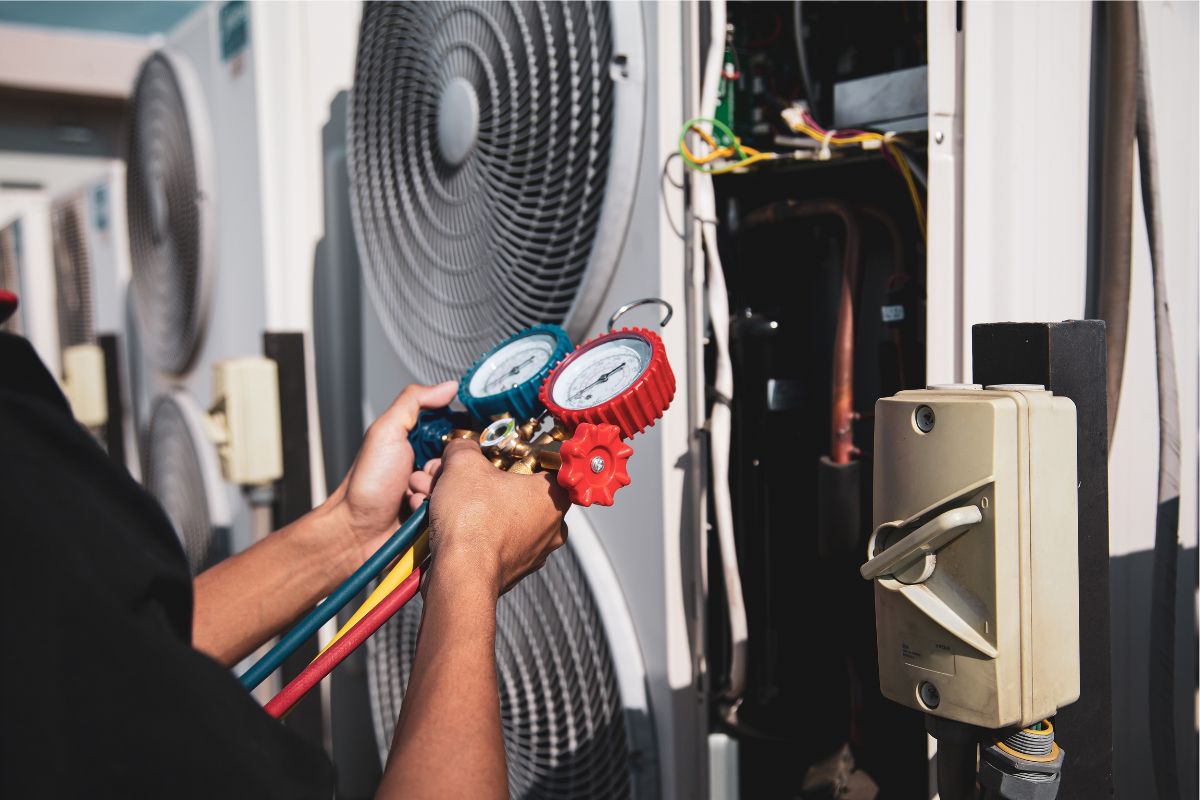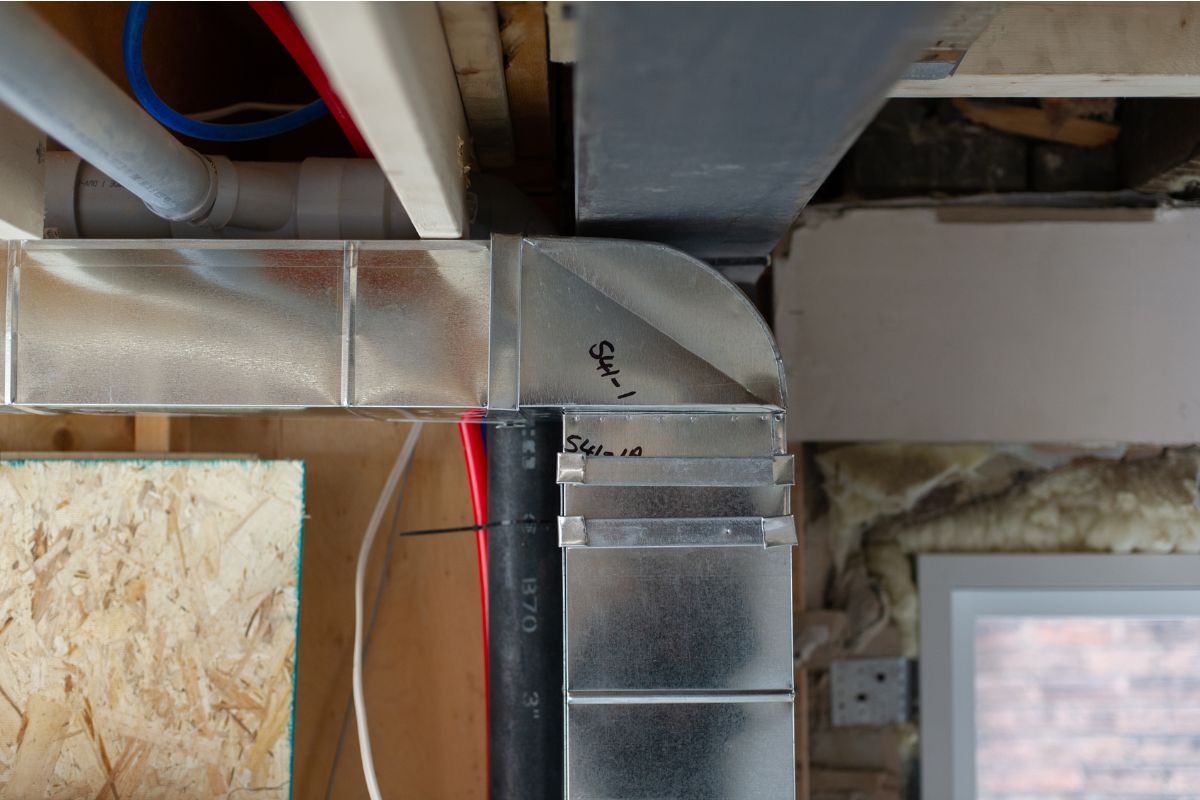As a hospital worker, you undoubtedly understand the importance of health – for your patients, as well as those working in and around the facility. The quality of care your patients receive is paramount to their recovery and wellbeing; however, it doesn’t stop there. Aside from providing medicine, healthcare professionals must ensure that they are creating an environment of safety and cleanliness in order to protect patient health. One way this can be achieved is through an efficient hospital HVAC system that ensures proper air ventilation, filtration and temperature control throughout all areas of the building.
In this blog post, we will discuss how hospitals can maintain good indoor air quality with their HVAC systems and keep their patients safe from dangerous airborne particles which could put them at risk of infection or disease transmission.
Understanding the Role of Hospital HVAC Systems in Optimizing Patient Care

Hospitals are high traffic areas with patients, healthcare professionals and visitors coming and going throughout the day. The constant movement of people and equipment means that the hospital HVAC system has to work around the clock to maintain a comfortable and safe environment for everyone.
Efficient functioning of the HVAC plays an important role in optimizing patient care, as it regulates the indoor temperature and humidity levels, removing infectious agents and impurities that could affect the health of patients and hospital staff. In fact, experts suggest that proper HVAC maintenance is pivotal to reducing the risk of hospital-acquired infections, which can lead to serious health complications. Therefore, it is critical that hospital administrators prioritize regular HVAC checks and maintenance to ensure that patients receive the highest quality care.
Examining Key Components of an Effective Hospital HVAC System for Hospitals
An effective hospital HVAC system is critical for ensuring that patients, staff, and visitors are safe and comfortable in healthcare facilities. Hospital HVAC systems differ from those in other buildings because they must meet stringent safety standards and provide high-quality air filtration. Hospital HVAC systems include many key components such as air handling units, ductwork, and exhaust fans, which work together to control air temperature, humidity levels, air quality, and ventilation rates. Properly functioning HVAC systems can help to reduce the spread of infectious diseases, allergens, and other airborne contaminants. Hospital facility managers should work closely with HVAC professionals to design, install and maintain their HVAC systems to ensure they are providing a safe and healthy environment for all.
Investigating Potential Problems with Hospital HVAC Systems
When it comes to hospitals, having a reliable HVAC system is crucial. Proper ventilation can help reduce airborne contaminants and maintain adequate humidity levels, which can reduce the spread of infectious diseases. However, there are potential problems that can arise with hospital HVAC systems, such as:
- duct leaks
- poor maintenance
- inadequate filtration
Without proper maintenance and timely repairs, these issues can compromise the overall indoor air quality, jeopardizing the health and safety of staff and patients alike. Therefore, it is essential to regularly investigate and address any potential problems with hospital HVAC systems to ensure optimal functioning and occupant comfort and safety.
Why Maintenance is Critical to Maintaining Patient Health
Maintenance is essential to keeping patients safe and healthy in hospitals. Any issue with the hospital HVAC system can have grave consequences, especially during a pandemic (like the ongoing COVID-19 pandemic). The ventilation systems must operate at optimal levels to ensure proper airflow throughout the facility.
Dirty filters or clogged air ducts can result in an inadequate supply of clean air, leading to the spread of airborne viruses or bacteria. Regular maintenance of the HVAC system can prevent these types of problems from occurring and keep patients safe. It is crucial that administrators prioritize maintenance and ensure that it is carried out regularly to protect patients’ health.
Tips for Settling on the Right HVAC System for a Hospital
When it comes to selecting the right HVAC system for a hospital, it’s important to consider certain factors that may differ from those of other buildings. Hospitals require HVAC systems that are designed to:
- regulate air quality
- reduce the risk of airborne pathogens
- maintain temperature and humidity levels in critical patient care areas
To ensure optimal performance, it’s essential to work with experienced HVAC contractors who understand the unique demands of a hospital environment. A thorough assessment of the hospital’s HVAC needs should be conducted, including load calculations, regional climate analysis, and future growth projections. By taking a comprehensive approach to selecting the right HVAC system for a hospital, facilities can ensure optimal comfort, safety, and efficiency for patients, staff, and visitors.
Keeping Up With Regular Inspections and Updates
Regular inspections and updates are essential in maintaining the smooth and uninterrupted HVAC operation of any facility, especially hospitals.
With a consistently functioning HVAC, hospitals can ensure that their patients receive adequate temperature regulation for their comfort and safety. Additionally, checks on the HVAC system prevent the spread of airborne pathogens that could jeopardize patients’ health.
Given the stringent nature of regulating hospitals, keeping up with regular inspections of HVAC systems is crucial. Up-to-date protocols and recent innovations in technology facilitate better services and ensure the environment in healthcare facilities remains safe and conducive to the healing process.
Using Technology to Monitor and Manage Hospital HVAC Systems
Maintaining optimal environmental conditions in hospitals is imperative for the well-being of patients, staff, and visitors. A well-functioning hospital HVAC system can help ensure that indoor air quality remains healthy, humidity levels are balanced, and indoor temperatures are comfortable. However, keeping tabs on HVAC performance can be a daunting task, especially in large medical facilities.
This is where technology becomes a game-changer, allowing for real-time monitoring and control of HVAC systems. By leveraging data analytics and machine learning algorithms, healthcare facilities can obtain detailed insights into the performance of their HVAC systems and take proactive measures when needed. With the right technological infrastructure in place, hospitals can not only ensure optimal indoor conditions but also reduce energy consumption, minimize equipment downtime, and ultimately enhance patient care.
Hospital HVAC System Optimization with Air Ideal
In conclusion, healthcare facility HVAC systems play an essential role in optimizing patient care. To ensure that these systems are running effectively and efficiently, it’s important to consider the key components of an effective system for hospitals, inspect for potential problems, confirm maintenance is done regularly and use technology to monitor its performance.
Remember, even with all of this in mind, selecting the right HVAC system for a hospital is never easy – that’s where Air Ideal can step in and make the process simpler! Our team of experts is here to answer any questions you may have so take advantage of our resources and get started on ensuring your hospital has the best possible HVAC system. With regular inspections, upgrades and maintenance checks, you can rest assured that your patients will be receiving the highest quality care possible in an environment designed just for them.
To learn more about Air Ideal’s services, please visit our website and contact us today for more!



